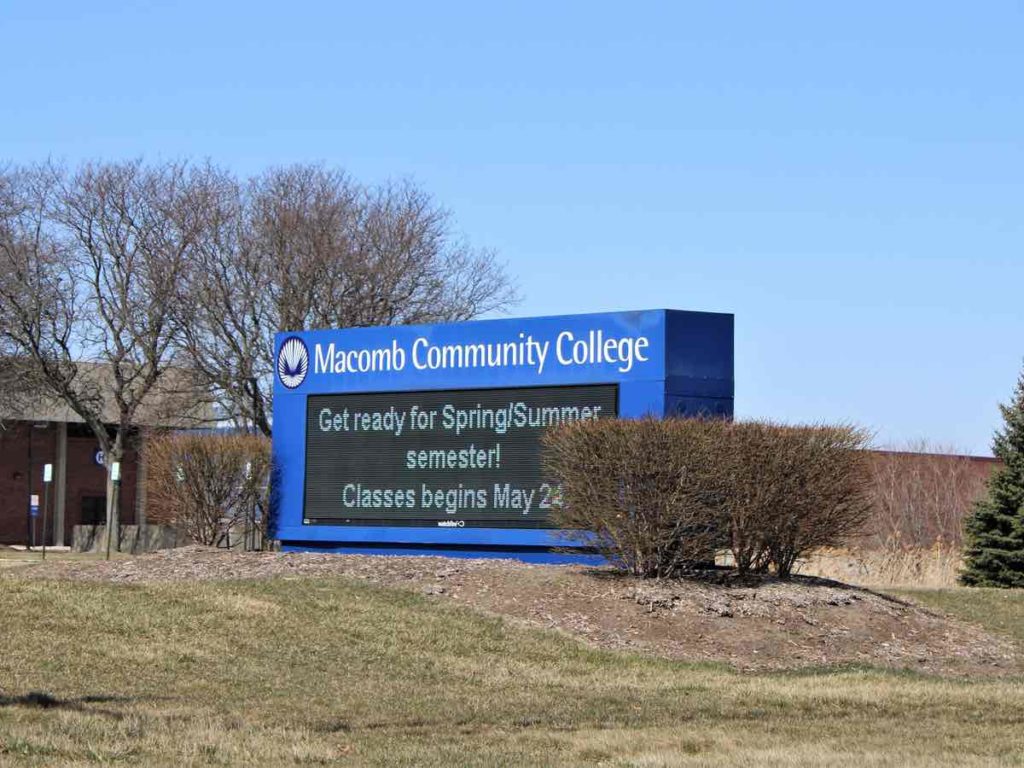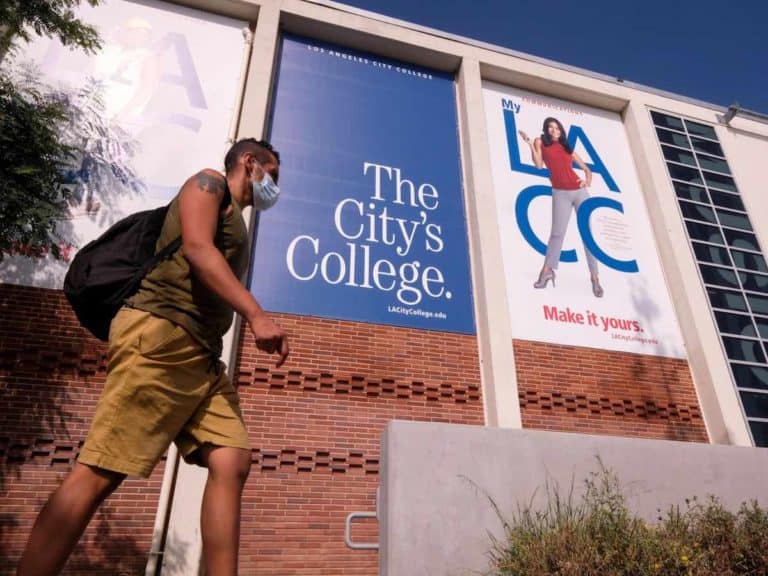Is It Better to Go to a Community College First Then Transfer to a University?
You may be thinking that you can save tons of money by going to community college and then transferring to a university to complete a bachelor’s degree.
However, I want to warn you that it is not as easy as it sounds and it requires active planning. One example is my wife. She graduated local community college, but when she transferred to the state online college, more than a dozen credits did not transfer or transferred partially.
By the way, if you want to learn more about choosing online colleges and which online schools are best, check my article here.
However, while it is hard, it is possible.
In general, for someone who wants to save money on secondary education, it is better to go to a community college to obtain an associate degree and then transfer to a university to earn a bachelor’s degree. The student must know which credits to take to make sure that all of them transfer.
Unfortunately, this model of earning a bachelor’s degree cheaper is more complicated than it seems.

The Excess Credit Phenomenon
A bachelor’s degree program consists of 120 credits. Meanwhile, an associate degree program is made up of 60 credits.
Basic math will tell you that, assuming that all community college credits will transfer seamlessly to a four-year institution, the associate degree holder will only have to earn 60 more credits to become a bachelor’s degree holder.
Sometimes, however, a transferee from a community college may actually wind up earning more than 120 credits.
According to data from the Community College Research Center (CRCC) by Columbia University, excess credits earned by those with an associate degree account for about 12% of all earned credits.
That’s around seven credits ending up completely useless upon acceptance into a four-year institution as an undergraduate student. But CRCC added that the number of excess credits can vary substantially among students in different programs.
Needless to say, choosing very well a bachelor’s degree program to work on is a must for transferees.
The problem with excess credits from community colleges is that it’s counterproductive for students who wish to earn a bachelor’s degree in the most efficient manner, time- and cost-wise.
In addition, they require community college students to render extra work toward the attainment of an associate degree, which has no real benefit given that they do not contribute to the attainment of a four-year degree.
The average cost of tuition at an in-state community college in 2022 is $3,377. Based on this figure, the total cost of excess credits can amount to almost $400.
This is when the importance of attending a community college with some form of an articulation agreement with a four-year institution comes in — we will tackle this matter in a few!
To sum up, because of excess credits, a student with an associate degree might graduate with a bachelor’s degree from a four-year institution with a total of about 127 credits under his or her belt.
Related Article: Is Community College Worth It?
Not All Community College Credits Transfer
The 60 credits comprising an associate degree come from various types of courses. Some of them are general education (gen ed) courses, while others are elective courses. And then there are also the so-called core courses, which are mandatory courses students have to study in order to meet the requirements of their major or program.
Generally speaking, gen ed courses are the same for everyone studying at a community college. Also, general education courses are practically the same across colleges and universities in the land.
It’s for this reason why gen ed credits tend to transfer from one accredited institution to the other trouble-free.
Typically, one-third to one-half of an associate degree consists of gen ed credits.
Due to this, it’s not uncommon for you to come across four-year institutions that accept only a maximum of up 30 community college credits — they are very much likely to come from gen ed courses such as English, math, natural science, social sciences and humanities.
But then community college students also take not only gen ed courses but core courses and electives, too, which are optional courses that may or may not require credit requirements for graduation.
While they have no choice but to take core courses necessary for the attainment of an associate degree, students attending a community college can choose which electives they take in order to get rid of as many of the courses in the core curriculum of the program they would like to enroll in at a university.
And this is why when choosing community college courses, one should also check the requirements of the target program.
That’s because taking as many courses as possible that fulfill the requirements of the four-year degree program you are after can take you closer to your dream diploma.
Of course, it will matter a lot if you will attend a four-year institution that will accept as many of your community college credits as it possibly can.
It’s due to this why you should look into what’s known as an articulation agreement, which we will talk about shortly. This matter is a complete game-changer — so now is not the right time to quit reading this post!
Then there is the fact that many four-year institutions accept credits only if the course from which they come has a particular grade. Sometimes the course has to have a B grade, while other times the course has to have a C grade. Certain universities may require a different minimum course grade in order for them to accept earned credits.
So, in other words, it’s not just the course that counts when it comes to transferring credits from a community college to a university, but, in most instances, also the grade obtained.
Failure to consider these things may leave you having to take additional courses at a four-year institution in order to fulfill the requirements of your chosen bachelor’s degree program. This may require you to spend an extra semester or two, thus keeping you from graduating within two years.

A Gateway to a Job and a Bachelor’s Degree
Keeping the cost down — this is the number one reason why many degree-seeking students earn an associate degree first at a community college before working on a bachelor’s degree elsewhere. By spending the first two years of their higher education experience at a two-year institution, they can save a lot of cash.
It’s true that some of the cheapest tuition costs can be found at community colleges. However, it’s also true that some of the lowest financial aid awards come from these schools.
According to a report, the average financial aid received by community college students amounts to $4,700 — that’s less than 50% of the average financial aid received by undergraduates overall, which is equivalent to $10,800. Veterans attending community colleges also tend to receive fewer benefits than veterans at universities.
This is why you should always take the net price into account rather than the sticker price when budgeting.
Before deciding to apply to a community college in hopes of staying within budget, look for a four-year institution with low tuition and competitive financial aid. After doing the math, compare costs — determine whether or not it’s going to be easier on the bank to spend your college years at a four-year institution from start to finish.
One of the many perks of earning an associate degree is that it prepares you for careers in many different fields. As a matter of fact, it can pave the way to an entry-level position at a high-paying job.
According to data from the National Center for Education Statistics (NCES), the median annual earnings of workers with an associate degree is $40,000 — that’s 28% less than the median annual earnings of those with a bachelor’s degree, although over 12% more than the median annual earnings of those with a high school diploma.
Associate degree holders who would like to become bachelor’s degree holders have the option to join the workforce and save enough money to fund their pursuit of a four-year degree.
Or they may also apply to companies that pay for college or offer tuition reimbursement such as:
- Amazon
- Apple
- Bank of America
- Baxter
- Ford
- Home Depot
- Microsoft
- Oracle
- UPS
- Verizon
- Walmart
Related Article: Can Community College Students Get Scholarships?
Articulation Agreements and Guaranteed Transfer
Also referred to as a transfer agreement or transfer pathway, an articulation agreement is an arrangement between different institutions, usually within the same state or region, which simplifies the transition of community college students to four-year institutions in order to continue their education and earn a bachelor’s degree.
It was in 1971 when four states — Florida, Illinois, Georgia and Texas — simultaneously came up with similar approaches to articulation within the context of students transferring from two-year to four-year institutions.
These days, a handful of articulation agreements are in existence.
One of them is what’s referred to as statewide guaranteed transfer. As the name suggests, it requires in-state universities with such a type of articulation agreement to fully accept an associate degree and thus all credits earned by transferees, allowing them to enter as junior students — halfway toward a bachelor’s degree!
Here are the states where there are statewide guaranteed transfer of an associate degree:
- Arkansas. Four-year public institutions should admit in-state community college graduates to junior status in a baccalaureate degree program if they completed a transfer degree or state minimum core curriculum.
- Colorado. Associate degree holders must be enrolled at junior status and will not be required to complete any additional courses in order to fulfill general education requirements.
- Florida. Graduates of in-state community colleges must be granted admission into the upper-division of state universities or four-year institutions in the Florida College System.
- Georgia. Associate degrees from Georgia community colleges, which consist of 42 core curriculum credits and 18 lower-division credits, are primarily intended to be transfer degrees leading to a bachelor’s degree.
- Hawaii. The completion of an associate degree from the University of Hawaii Community Colleges (UHCC) fulfills admission and lower-division general education core requirements at all baccalaureate degree-granting institutions.
- Idaho. An associate degree from a regionally accredited community college fulfills the general education requirement at four-year public institutions, requiring no further completion of general education requirements.
- Illinois. Community college graduates, if they meet all admission requirements, do not need to complete more than 60 additional credits at the four-year institution.
- Indiana. Four-year institutions must apply all the credits earned for the associate degree toward the related baccalaureate degree so that transferees may begin the baccalaureate degree as junior status students.
- Iowa. Credits from an associate degree from a community college to a baccalaureate degree program offered by any institution governed by the state board of regents should be transferred seamlessly.
- Kansas. All associate degrees can transfer as a block to articulated programs at community colleges, technical colleges and four-year institutions that have program-to-program articulation.
- Kentucky. Transferees are not required to complete any additional courses if they have an associate degree, and they must also receive priority for admission over out-of-state students.
- Louisiana. Students with an associate degree are deemed to have met all general education and other core curriculum requirements and must be admitted to the upper-division of four-year institutions.
- Maine. Those with an associate degree from the Maine Community College System must be allowed to transfer credits to the University of Maine System for use toward a baccalaureate degree.
- Maryland. All 60 credits associate degree holders earned at a community college in Maryland are transferable to any public in-state institution for credit toward a bachelor’s degree.
- Massachusetts. Four-year institution guarantees not only the transfer of all 60 credits earned from a community college but also admission and a tuition discount to a linked baccalaureate degree program.
- Mississippi. All four-year institutions in Mississippi should accept all transferable credits from courses from an accredited community college, although courses should have a grade of C or an equivalent.
- Missouri. In Missouri, an associate degree is designed as a statewide general studies transfer degree, although transferees may sometimes have to complete additional courses a major requires.
- Nevada. The completion of an associate degree at a community college automatically fulfills the lower-division general education requirements at any other Nevada System of Higher Education (NSHE) institution.
- New Jersey. All four-year public institutions in New Jersey should provide a seamless transfer of academic credits from a completed associate degree to a baccalaureate degree program.
- New Mexico. All courses within a community college transfer module are guaranteed to transfer to any New Mexico university and apply toward bachelor’s degree program requirements.
- North Carolina. Students who graduate with a two-year associate degree are guaranteed admission to a four-year institution in the University of North Carolina (UNC) system.
- Ohio. Any associate degree offered at a state institution may be transferred and also applied to a bachelor’s degree program in an equivalent field at any other state institution.
- Oklahoma. The lower-division general education requirement of the baccalaureate degree shall be the responsibility of the institution awarding the associate degree if students have completed an associate degree program.
- Oregon. Community college students may earn an Associate of Arts Oregon Transfer (AAOT) degree in preparation for upper-division courses for a baccalaureate degree.
- Pennsylvania. Students at Pennsylvania Transfer and Articulation Center (PA TRAC) institutions can transfer from an associate to a bachelor’s degree, entering with junior status.
- Rhode Island. Community College of Rhode Island (CCRI) students can be conditionally admitted to Rhode Island College or the University of Rhode Island, where 60 credits can be applied toward a bachelor’s degree.
- South Carolina. Students with an associate degree from any public two-year South Carolina institution will automatically be entitled to junior-level status at whatever four-year institution they attend.
- South Dakota. Those who have an associate degree from any South Dakota Board of Regents’ system and transfer to another member campus will be deemed to have fulfilled the general education requirements.
- Tennessee. Students with an associate degree from a Tennessee community college are deemed to have met all general education and core requirements for transfer to a Tennessee public university as a junior-level student.
- Utah. An associate degree allows a student to transfer to any four-year institution within the Utah System of Higher Education without taking any lower-division pre-major courses.
- Virginia. Students who have earned a recognized transfer associate degree should be considered to have met lower general education requirements at public four-year institutions.
- Washington. Graduates of community or technical colleges who have earned a transferable associate degree shall have junior standing when admitted into a four-year institution of higher education.
- West Virginia. Students who have earned an associate degree at community colleges in the state can be admitted at junior level and graduate with the same number of total credits as non-transfer students.
- Wisconsin. Holders of an associate degree containing the system-wide requirements from an institution in the University of Wisconsin System will be considered as having fulfilled the general education requirements.
- Wyoming. Students who have completed an associate degree from a Wyoming community college get credit toward the completion of the lower-division general education requirements.
Planning Ahead
Made up your mind that you will attend a four-year institution after completing an associate degree program at a community college? See to it that you carefully plan your educational journey as early as possible.
Otherwise, you could end up wasting not only precious money but also time that you can never recoup.
Because every four-year institution has its own requirements and policies, including especially those that apply to students transferring from community colleges, it’s of utmost importance that you strategize.
Someone who can help is your high school counselor — he or she can advise you not only about your personal decisions but also about academic ones.
It’s also a wonderful idea to get in touch with the counseling office of the community college as well as the transfer advisers at the four-year institution you have shortlisted.
Don’t be too shy to ask some of the most pressing questions such as:
- Does the school have an articulation agreement with the other?
- Will the credits I earn be accepted when I transfer?
- What grades do I need to get in order to get credit upon transferring?
One of the main reasons why some students complete an associate degree program at a community college first before attending a four-year institution is to save a substantial amount of money.
However, if a community college doesn’t have an articulation agreement with a four-year institution as well as the wrong courses are taken by the community college student, chances are that he or she will end up losing credits and taking additional courses toward the bachelor’s degree, thus making college cost more than necessary.
During the planning stage, make sure to arm yourself with a calculator and perform all the computations.
Just Before You Apply to a Community College
When taken at face value, spending the first two years of your life as an undergraduate student at a community college is cheaper than attending a four-year institution from start to finish — the average tuition at a community college is 64% lower than at a public in-state school and up to 91% lower than at a private non-profit.
Unfortunately, there are factors that can make this model costlier and more time-consuming than anticipated. This is especially true if you take the wrong courses at a community college and later attend the wrong university.
Using a community college as a stepping stone, in some instances, can do more harm than good.
Make sure that you keep in mind everything that you have read in this post before you actually begin your quest toward being a bachelor’s degree holder.
With careful planning, you will be able to pick a community college that can confer all the credits you will need toward a bachelor’s degree program at a university cheaply and quickly.
Read Next: Community College and Social Life
Disclaimer: The views and opinions expressed in this article are those of the authors and do not necessarily represent those of the College Reality Check.





